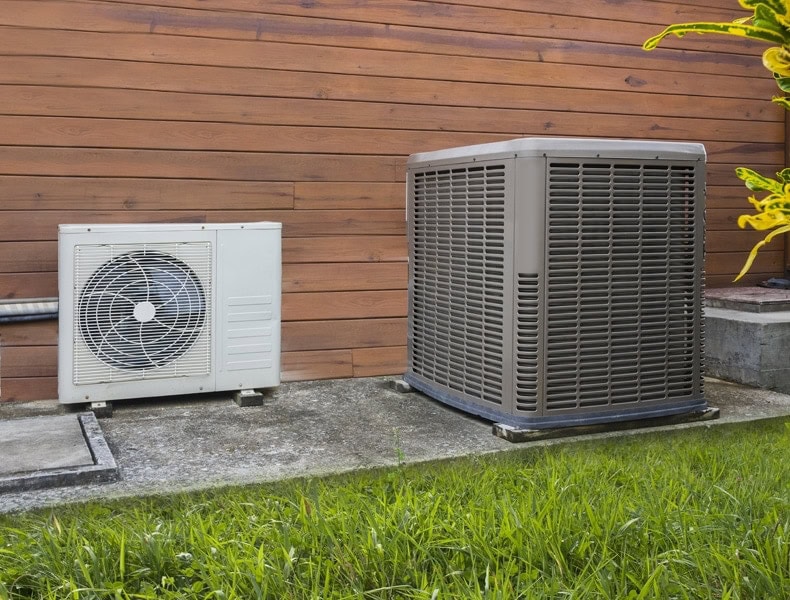Heat Pumps and How do They Work?

A heat pump is a device that transfers heat from one place to another, from inside to outside or from outside to inside. In the winter a heat pump works like a heater, extracting heat energy from outside and transferring it inside. In the summer the process reverses and it will remove heat from your home and transfer it outside like an air conditioner.
What is the difference between an air source heat pump, water source heat pump and a geothermal heat pump?
There are many different names and types of heat pumps but they can all be categorized as one of three different types: air source, water source or geothermal.
Air Source Heat Pump
An air source heat pump transfers energy in the air from one place to another. It uses an outdoor heat exchanger coil to extract heat from the air and an indoor heat exchanger coil to transfer the heat into air ducts, radiators or a hot water tank. This process can also be reversed so that it may be used as an air conditioner as well.
Water Source Heat Pump
A water source heat pump operates similarly to the air source heat pump but uses water instead of air to transfer heat. These types of pumps are not available to everyone because of the resources needed, but if you live near a well, lake or other natural resource this can be a viable option. A water source heat pump cycles water through a series of pipes that are laid out in water. As the water cycles, it collects the heat and transfers that energy into your home. Again this process reverses in the summer and carries heat out of your house, also by way of the water in the pipes.
Geothermal Heat Pump
A geothermal heat pump is also called a ground source heat pump. In this system, the pump uses the earth as its heat source. Conceptually, a geothermal heat pump is the same as an air source or water source heat pump.
There are two different methods of installation:
- Horizontal Ground Coupled System
A horizontal ground coupled system buries horizontal piping 4 feet or more under the ground and circulates a fluid like antifreeze or water through Vertical Ground Coupled System
- Vertical Ground Coupled System
A vertical ground coupled system has the same process as its horizontal counter part but the pipes are buried vertically.
The geography and climate around your house are important when deciding which kind of heat pump is right for you. If you have more questions about what kind of heat pump is best for your home, or want to request a quote or service please call us today or request service online.
Contact the experts!
